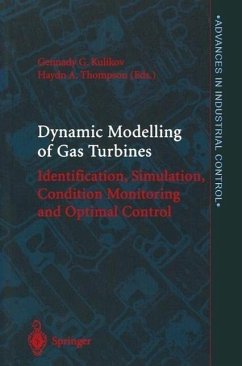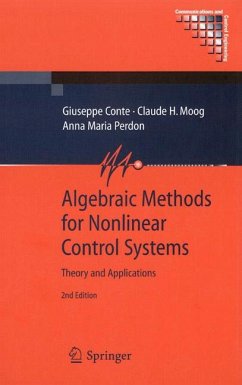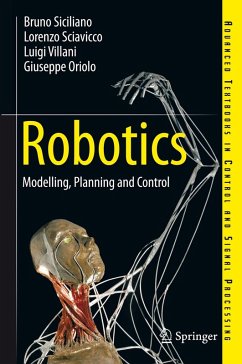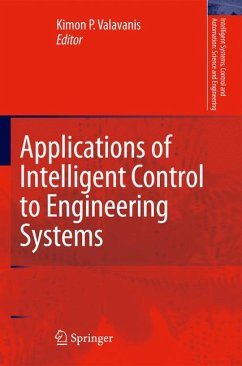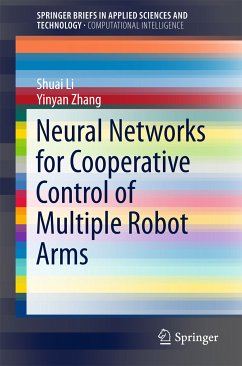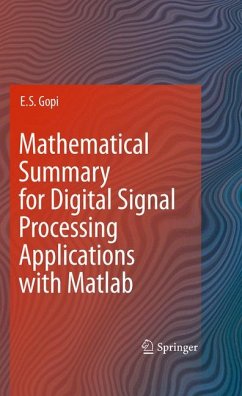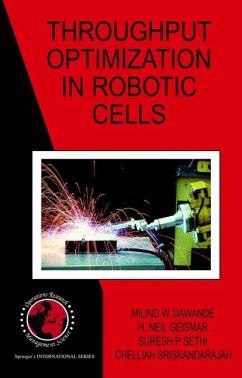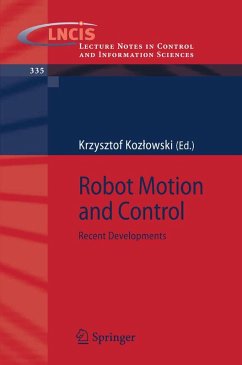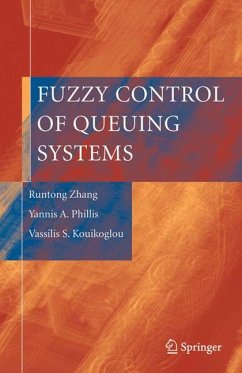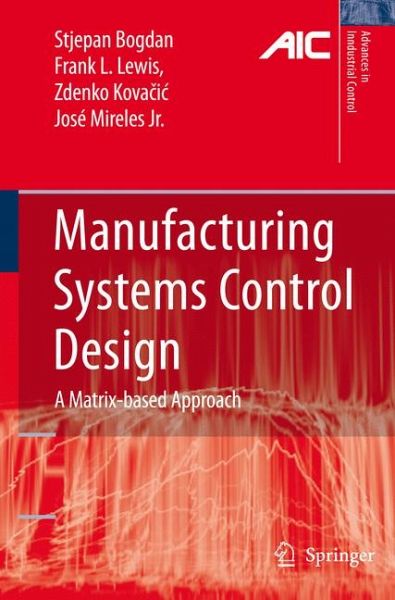
Manufacturing Systems Control Design (eBook, PDF)
A Matrix-based Approach
Versandkostenfrei!
Sofort per Download lieferbar
112,95 €
inkl. MwSt.
Weitere Ausgaben:

PAYBACK Punkte
56 °P sammeln!
Manufacturing Systems Control Design details a matrix-based approach to the real-time application of control in discrete-event systems and flexible manufacturing systems (FMS) in particular. The "and/or" algebra in which matrix operations are carried out enables fast and efficient calculations with a minimum of computing power. In addition, the method uses standard task-sequencing and resource-requirements matrices which, if not in use already, can be easily derived with the help of this text. Matrix-based techniques are compared with Petri net and max-plus algebra ideas.Virtual modeling of co...
Manufacturing Systems Control Design details a matrix-based approach to the real-time application of control in discrete-event systems and flexible manufacturing systems (FMS) in particular. The "and/or" algebra in which matrix operations are carried out enables fast and efficient calculations with a minimum of computing power. In addition, the method uses standard task-sequencing and resource-requirements matrices which, if not in use already, can be easily derived with the help of this text. Matrix-based techniques are compared with Petri net and max-plus algebra ideas.
Virtual modeling of complex physical systems has brought a new perspective to the investigation of phenomena in FMS. The software discussed in this book(and downloadable from the authors' website at http://flrcg.rasip.fer.hr/) supplies the reader with a graphical user interface that can do many things to make the design and control of FMS easier.
The examples presented herein tackle the real-world problems faced by engineers trying to put into practice methods developed in academia, bringing together catholic experience of sensors, control systems, robotics, industrial automation, simulation, agile assembly and supply chains. Common concerns confronted include:
. predictability: issues of control system modeling and analysis are addressed;
. producibility: by looking at the design and synthesis of cellular workcells;
. productivity: in terms of dynamic sensing and control.
Covering all the steps from identification of operations and resources through modeling of the system and simulation of its dynamics in a virtual environment to the transformation of those models into real-world algorithms, this monograph is a sound practical basis for the design of controllers for manufacturing systems. It will interest both the academic and practising control or manufacturing engineer wishing to enhance the control of flexible systems andoperations researchers looking at manufacturing performance. The end-of-chapter exercises provided and the easy-to-read introduction to the subject will also suit the final-year undergraduate and the beginning graduate in these disciplines.
Advances in Industrial Control aims to report and encourage the transfer of technology in control engineering. The rapid development of control technology has an impact on all areas of the control discipline. The series offers an opportunity for researchers to present an extended exposition of new work in all aspects of industrial control.
Virtual modeling of complex physical systems has brought a new perspective to the investigation of phenomena in FMS. The software discussed in this book(and downloadable from the authors' website at http://flrcg.rasip.fer.hr/) supplies the reader with a graphical user interface that can do many things to make the design and control of FMS easier.
The examples presented herein tackle the real-world problems faced by engineers trying to put into practice methods developed in academia, bringing together catholic experience of sensors, control systems, robotics, industrial automation, simulation, agile assembly and supply chains. Common concerns confronted include:
. predictability: issues of control system modeling and analysis are addressed;
. producibility: by looking at the design and synthesis of cellular workcells;
. productivity: in terms of dynamic sensing and control.
Covering all the steps from identification of operations and resources through modeling of the system and simulation of its dynamics in a virtual environment to the transformation of those models into real-world algorithms, this monograph is a sound practical basis for the design of controllers for manufacturing systems. It will interest both the academic and practising control or manufacturing engineer wishing to enhance the control of flexible systems andoperations researchers looking at manufacturing performance. The end-of-chapter exercises provided and the easy-to-read introduction to the subject will also suit the final-year undergraduate and the beginning graduate in these disciplines.
Advances in Industrial Control aims to report and encourage the transfer of technology in control engineering. The rapid development of control technology has an impact on all areas of the control discipline. The series offers an opportunity for researchers to present an extended exposition of new work in all aspects of industrial control.
Dieser Download kann aus rechtlichen Gründen nur mit Rechnungsadresse in A, B, BG, CY, CZ, D, DK, EW, E, FIN, F, GR, HR, H, IRL, I, LT, L, LR, M, NL, PL, P, R, S, SLO, SK ausgeliefert werden.



